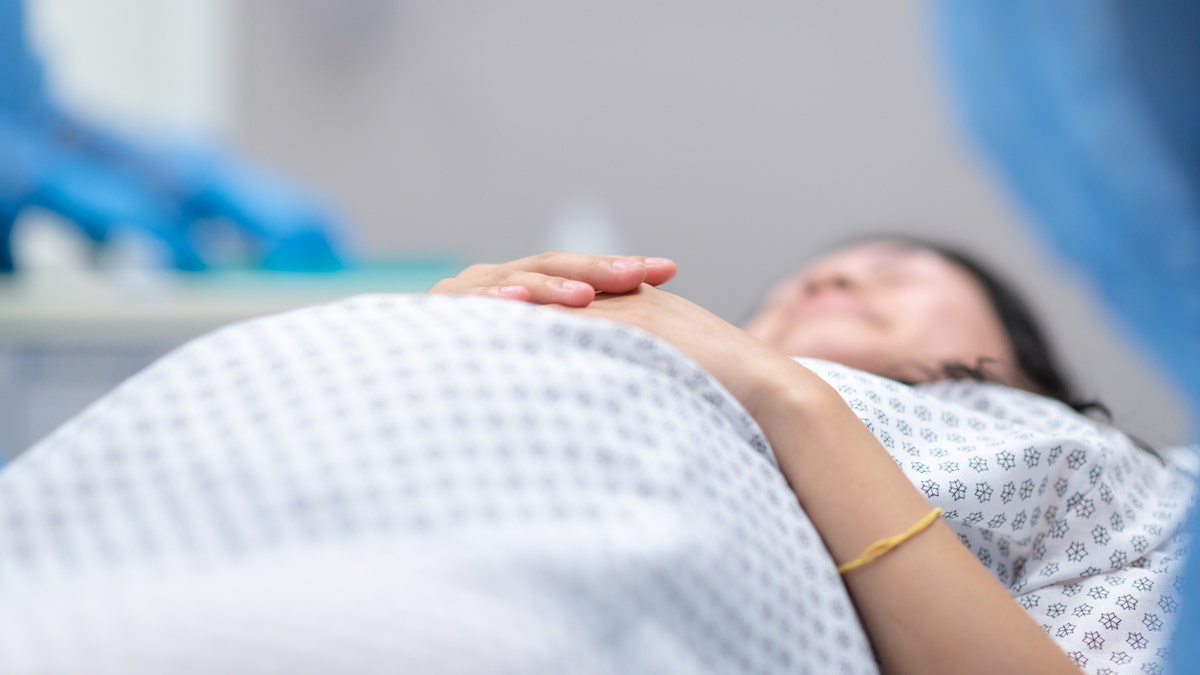Pregnant women worry about childbirth during COVID-19 pandemic
Fox News correspondent Laura Ingle reports.
Get the latest news on coronavirus and more delivered daily to your inbox. Sign up here.
While expectant mothers may be weighing the option of home births to avoid the risk of contracting coronavirus while in the hospital, one experienced obstetrician is advising against it.
Home births typically do not have access to emergency interventions and monitoring, and the risk of newborn death is double compared to delivering at a hospital or birth center, while the risk of brain injury to the child is tripled, according to Dr. Adam Wolfberg, obstetrician and chief medical officer with Ovia Health.
“As an obstetrician, I never recommend home births,” Wolfberg told Fox News. “As much as somebody might want it, I just don’t think it’s safe for mom or for baby.”
CLICK HERE FOR FULL CORONAVIRUS COVERAGE
Wolfberg worries for pregnant moms considering home births considering “how thinly stretched the EMS system is,” and the full measures being taken by hospitals to reduce the risk of coronavirus infection cannot be replicated in a home setting. Though Wolfberg is an advocate for midwifery and said midwife-attended deliveries are just as good as those attended by an obstetrician, he mainly worries about the lack of access to emergency interventions and monitoring.

Despite a growing interest in home births amid the coronavirus pandemic, obstetrician Dr. Adam Wolfberg assures expectant mothers to remain confident of a safe labor and delivery in hospital settings. (iStock)
Early in the coronavirus outbreak, Ovia Health sent weekly anonymous surveys to app users, asking women about prenatal care experience and labor and delivery, including whether the woman was planning on a home birth. The surveys are intended to help the obstetric community understand the shifting landscape amid the pandemic.
CORONAVIRUS: WHAT YOU NEED TO KNOW
Wolfberg said, prior to the coronavirus, about .9 percent of users reported plans for a home birth, which directly tracks with the national obstetric experience. Since the coronavirus outbreak, the weekly surveys report back 2.5 percent of users contemplating home births.
“If their plan holds true, we’re seeing potentially a tripling of home births compared to normal times and I find that really concerning,” the obstetrician said.
App users also report their concerns, the most frequent of which were for their personal health and approaching delivery experience.
Ovia Health also arranged a COVID-19 symptom tracker based on CDC guidance, which as of Friday had been used by nearly 174,000 women. Wolfberg said some symptoms are specific to pregnancy, such as gastrointestinal upset. The tracker was the first widely available COVID-19 symptom tracker for pregnant women, with others following later on, he added.
Wolfberg delivers babies twice per week at a Cambridge Hospital in Massachusetts and described the labor and delivery environment there.
“There’s loads of fear. Patients have to put a mask on when coming into a facility. They are surrounded by people like me who are wearing N95s and face shields, dressed head-to-toe in protective garb that we never would’ve used,” Wolfberg said. “Fortunately, amidst the fear, there’s joy and happiness and there’s new life and that hasn’t changed.”
On a positive note, Wolfberg mentioned about a 50 percent reduction in length of hospital stay for his patients. Typically, new mothers who deliver babies vaginally stayed in the hospital for two days, with a four-day stay after cesarean sections. Amid COVID-19, those hospital stays now last 24 and 48 hours, respectively.
“It’s a restricted experience. ... It’s not less safe, we’re able to practice obstetrics as safely as we always have,” Wolfberg said.
In March, some private New York hospitals moved to ban spouses, partners and other support persons accompanying women during labor and delivery, but after an immediate outcry, the state reversed the policy. Where Wolfberg practices, he said only one support person can accompany the laboring mother, and if the support person leaves the hospital, they cannot come back.
Despite modifications to births in hospital settings during the pandemic, Wolfberg assures expecting mothers of their safety.
“Women should remain confident that their health care provider is going to make sure that they have a safe pregnancy and a safe delivery,” he told Fox News. “It’s going to look a little bit different but at the end of it, they and their baby will be fine. I have enormous confidence in that.”

